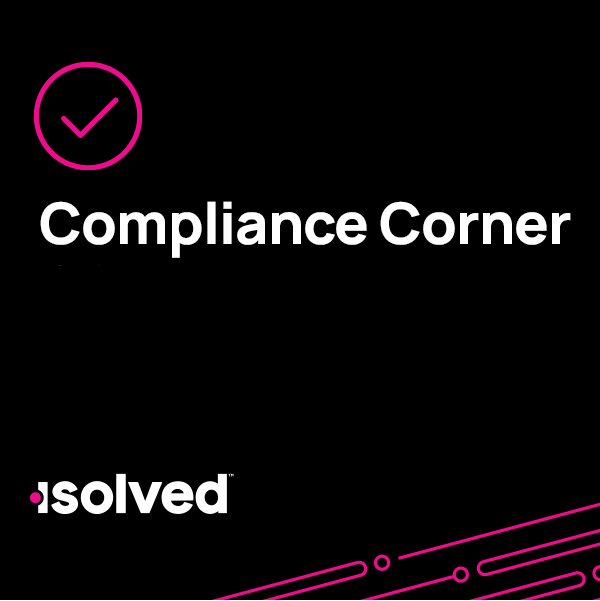Compliance Corner: Youth Worker Trends
Wednesday July 31st, 2024
Estimated time to read: 3 minutes

There are more generations in the workforce than ever before!
Generation Z, colloquially known as Zoomers, are attracted to the workforce by new opportunities and rising wages. This generation is defined as those born between 1997 and 2012, which means many have already started their careers, and many more will be doing so soon. And, with plenty of entry-level positions available, over 250,000 more high school students are now working compared to pre-pandemic employment. We’re seeing a surge in youth employment because of rising inflation, newfound financial independence and more of the generation contributing to household expenses.
In this month’s Compliance Corner, we’ll cover trends in youth employment, requirements for employers and the best way to maintain compliance.
Child Labor Violation Trends
The Bureau of Labor Statistics reported that in May 2024, over 6 million teens were employed, the highest since 2008. This trend is expected to continue—and with it, an increase in violations.
In 2023, the Wage and Hour Division reported the following:
- 14% increase in child labor violations
- 5,800 children employed in violation of laws
- $8 million in penalties assessed – an 83% increase from the prior year
The most common violations in 2024 include:
- Hazardous work
- Working Hours
- Federal Minimum Wage Violations
- Serving Alcohol
Fair Labor Standards Act (FLSA), Department of Labor (DOL) and Youth Employment
The FLSA is a federal law that guides conditions for youth employment and the DOL is the federal agency that enforces youth rules. However, many states maintain stringent control over minor work that must be followed in addition to federal law.
FLSA Provisions:
- Prohibits employment of minors under the age of 14 in nonagricultural jobs with limited exceptions.
- Provides minors aged 14-15 with hours restrictions pertaining to school time with exceptions during holidays and breaks.
- Minors aged 16-17 are subject to limits on the number of hours worked with a few exceptions.
- Any minor under the age of 18 cannot work in hazardous occupations.
Youth Worker Labor Law Trends
Youth worker labor laws have become a hot topic as more conservative states relax legal restrictions and liberal states push to increase regulations.
Proponents of the trend toward flexibility feel changes are necessary to cope with the nationwide worker shortage, develop job skills and allow youth to earn wages. The competing upswing in strengthening child labor legislation is due to the increase in child labor violations.
Trends in weakened youth worker protections include but are not limited to:
- In 2023, Arkansas was the first state to enact the Youth Hiring Act of 2023. This act removes the requirement to hold an employment certification issued by the Arkansas DOL for minors under age 16.
- Iowa amended child labor laws in 2023 lowering the minimum age from 18 to 16 to sell or serve alcoholic beverages, repealed required labor permits and modified permissible occupations for certain aged minors.
- Alabama also ended youth worker permits for 14-15 year old workers.
- Kentucky passed a bill allowing nonprofit employers to hire minors at 12 years of age.
- Florida has amended its child labor statute to lower the age of certain occupational and scheduling restrictions for minors and expand the categories of minors eligible for exemptions to the state’s child labor hour restrictions.
- Indiana amends age restrictions on sales and service of alcoholic beverages, exemptions to the limitations on employment of minors, changes to reporting requirements for employers of minors and a time limit on civil penalties for violations.
Trends in strengthened youth worker protections include but are not limited to:
- Nebraska increased criminal penalties for child labor violations and inspections may also be conducted by any agent or employee of the Nebraska Department of Labor. Additionally, under the amended law, the Nebraska Commissioner of Labor may subpoena records from any employer relating to potential child labor violations.
- Virginia has amended its laws pertaining to civil penalties for child labor offenses to increase the amount of monetary penalties that can be imposed.
- Alabama increased penalties for hazardous work violations.
- Colorado increased violation penalties and makes child labor victims eligible for damages.
- Utah now restricts hours for minors under 16.
- Minnesota added anti-retaliation protections and applied penalties per violation.
How employers can avoid youth worker violations and penalties
- Develop and implement strong policies
- Conduct regular audits to ensure compliance with state and federal laws
- Provide management training on restrictions
The Future of Youth Worker Trends
Stay tuned—this trend is still developing. Additional amendments from statehouses across the country are likely on the way in 2024 that will affect employers. It’s fair to say that employers can expect an increase in child labor law enforcement and increased penalties. The best protection for businesses and minor employees is to consult with HR professionals or legal counsel to ensure compliance.
Want to ensure that your organization is maintaining compliance when it comes to youth workers? HR Services is here to help!
About Lisa Bright:

Lisa serves on the isolved HR Services team, bringing more than 20 years of experience in HR. She has supported a variety of industries including healthcare, manufacturing, education and preferred employer organizations. Her areas of expertise include compensation and benefits, policy compliance, employee relations and performance management.
Resources:
- Child Labor and Employers: https://www.dol.gov/agencies/whd/youthrules/employers
- FLSA Child Labor Provisions Fact Sheet: https://www.dol.gov/agencies/whd/fact-sheets/43-child-labor-non-agriculture
- State Labor Laws: https://www.dol.gov/agencies/whd/state
This article has been read 2,671 times.
